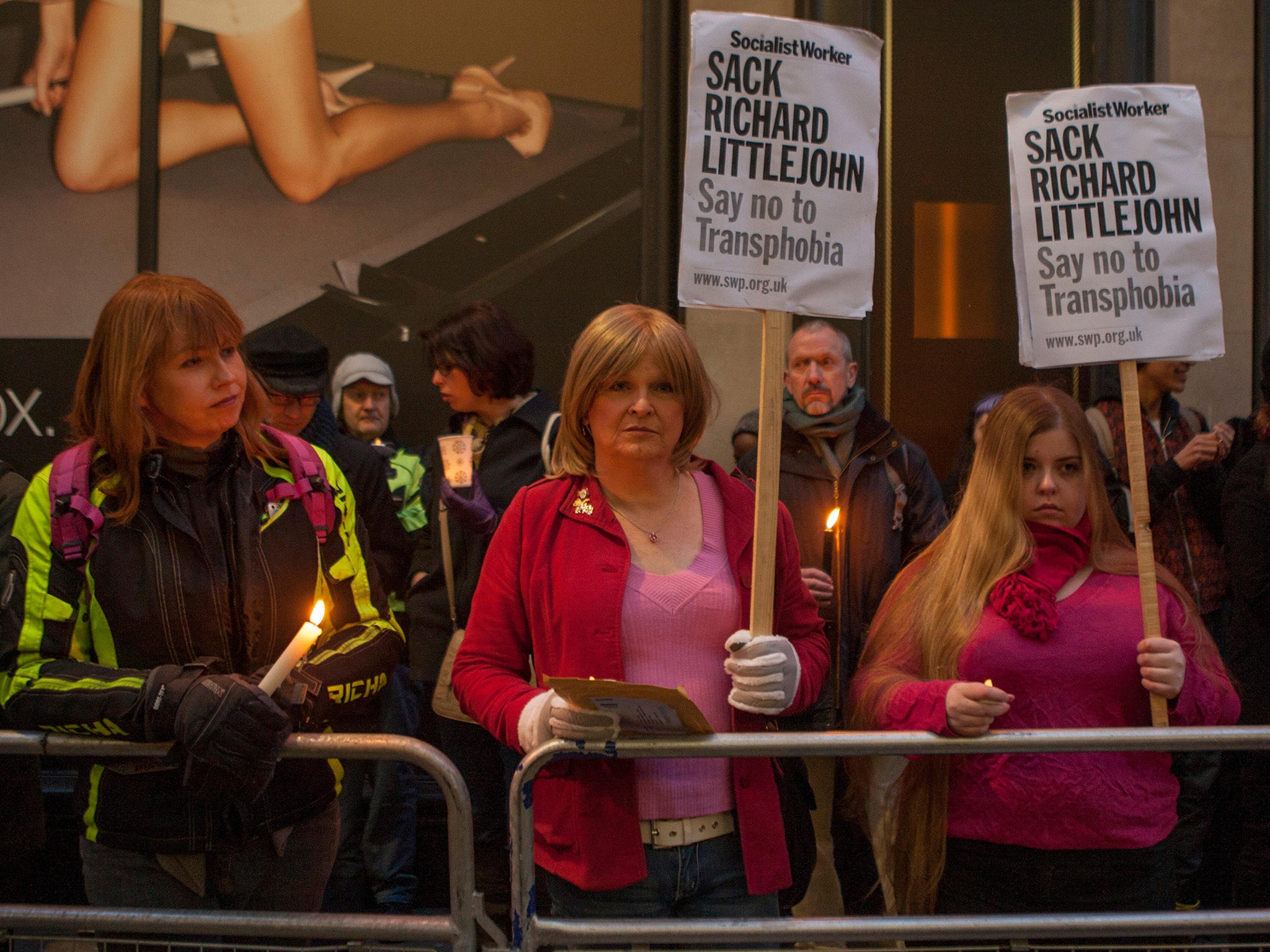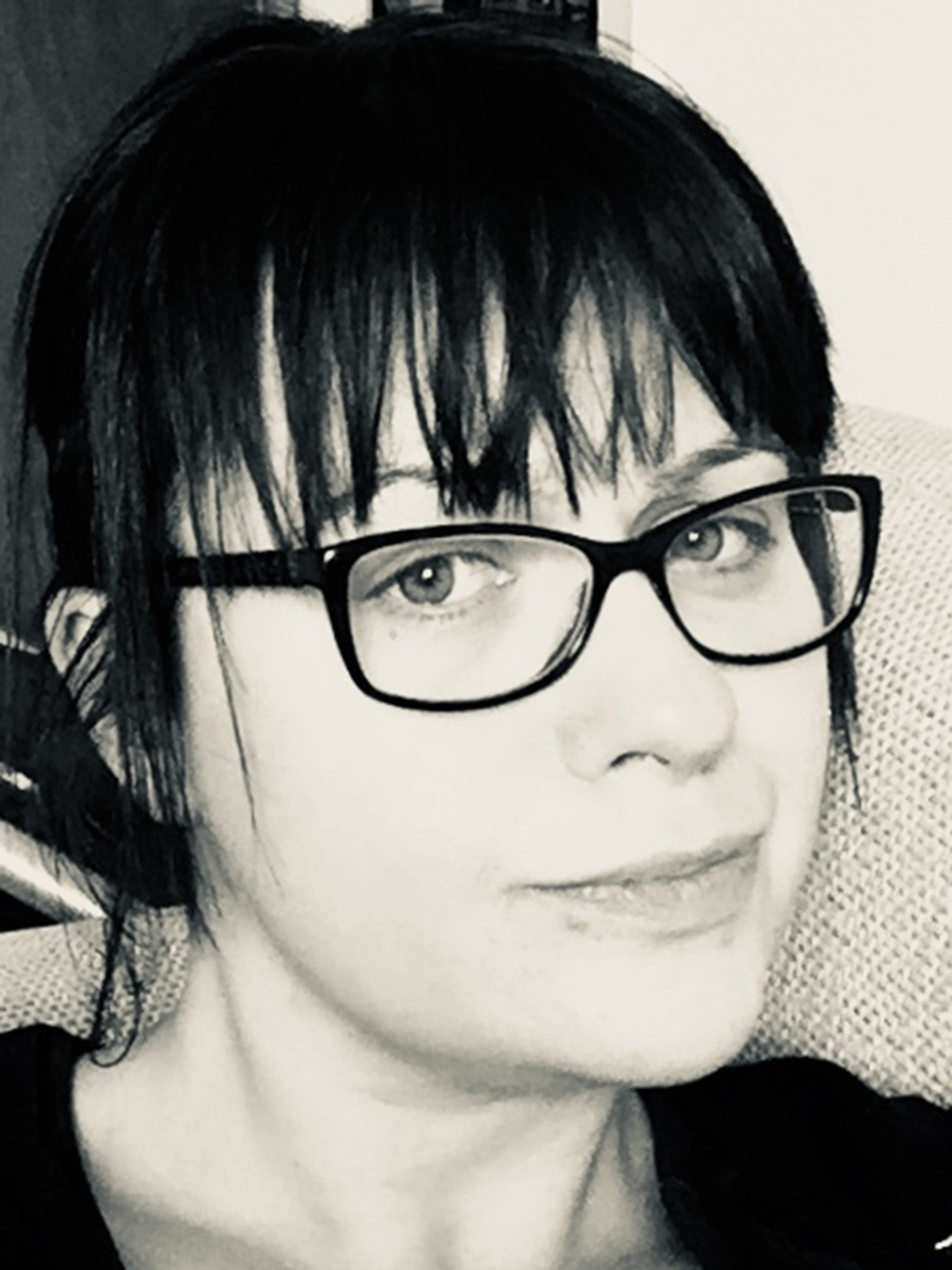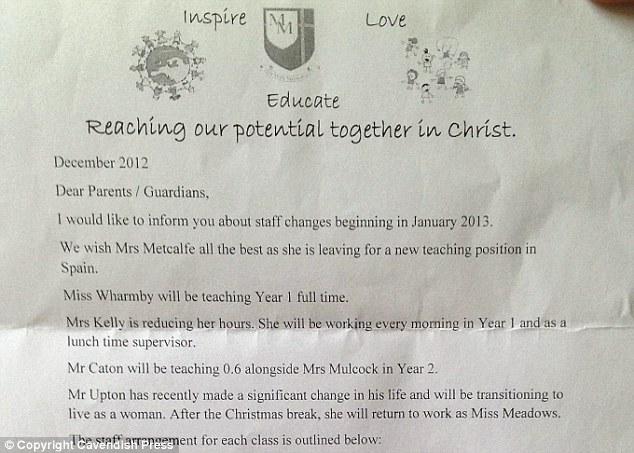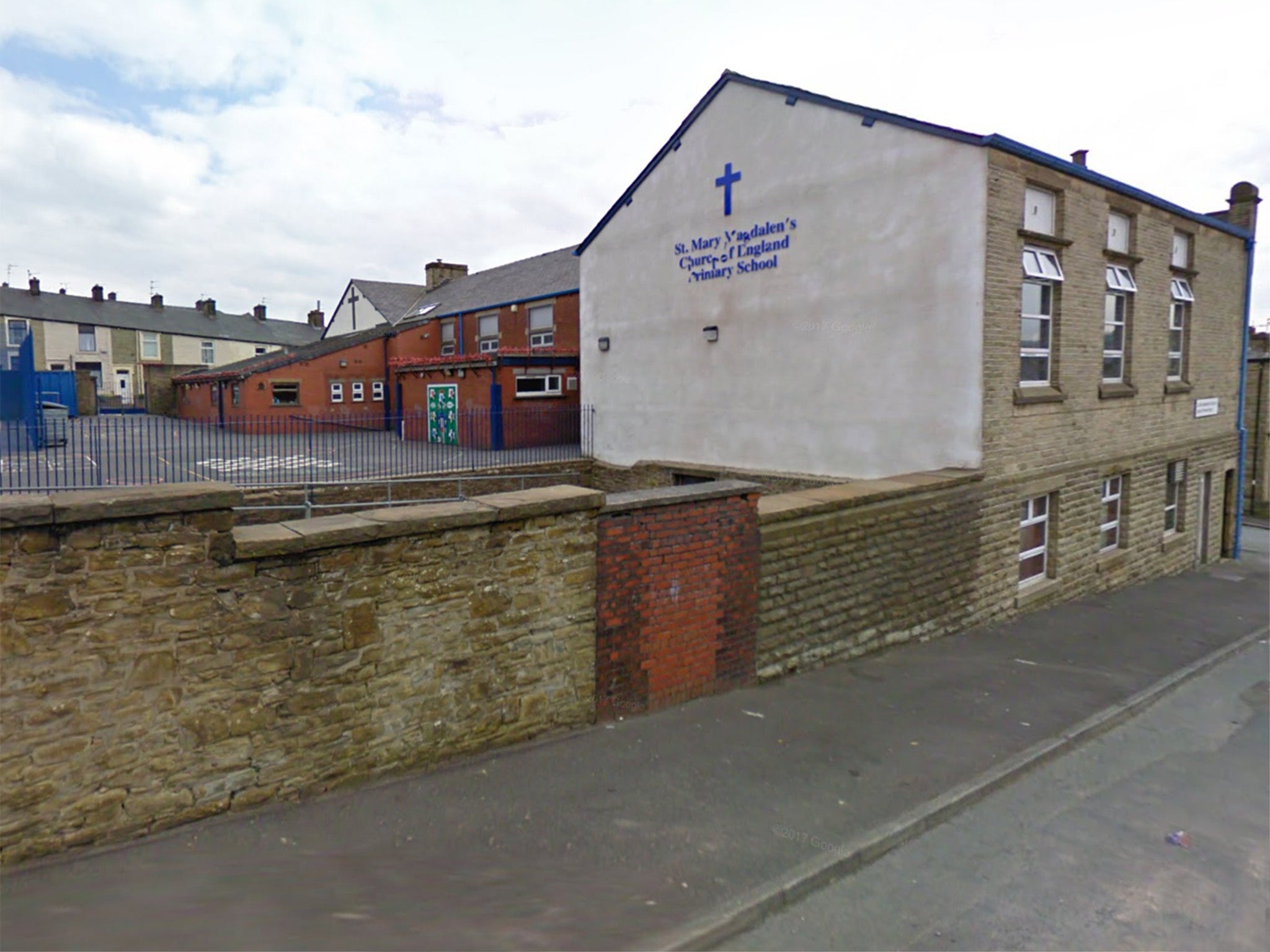Lucy Meadows was a transgender teacher who took her own life. Her story must be remembered
After her death, the coroner accused the Daily Mail of carrying out a character assassination. Here, Ruth Smith, who was once married to Lucy, recalls the media circus

Your support helps us to tell the story
From reproductive rights to climate change to Big Tech, The Independent is on the ground when the story is developing. Whether it's investigating the financials of Elon Musk's pro-Trump PAC or producing our latest documentary, 'The A Word', which shines a light on the American women fighting for reproductive rights, we know how important it is to parse out the facts from the messaging.
At such a critical moment in US history, we need reporters on the ground. Your donation allows us to keep sending journalists to speak to both sides of the story.
The Independent is trusted by Americans across the entire political spectrum. And unlike many other quality news outlets, we choose not to lock Americans out of our reporting and analysis with paywalls. We believe quality journalism should be available to everyone, paid for by those who can afford it.
Your support makes all the difference.My name is Ruth Smith and... you’ve probably never heard of me.
Why should you? Because my own story, insofar as it has intersected with the world of “big news”, has been mostly a sidenote. I am a person forever associated with another who, for a time, made headlines. Since then, I have chosen to stay out of the spotlight: to get on with my life quietly, peacefully; looking after my family. It has taken five years to build up the strength to recall and focus on the drama, upheaval and upset that changed the way I live and think, and which literally brought hatred to my front door.
But there comes a time – and this is it – when staying silent is no longer an option: when staying silent is to collude in the wrongdoing of others. So, as the press recently upped its onslaught on the trans community in ways so reminiscent of what took place just five short years ago, I choose to speak.
For a while I was married to Lucy Meadows, who took her own life in March 2013. We were together. Then we were not. But at the end, we were still best friends. Although our love had changed, she was still my soulmate. She talked and I counselled the best I could but, at the end I could see the toll the press was taking on her mental health. The weight on her shoulders was physically evident. Nothing made sense any more. Nothing was helping. Therefore, I was not entirely surprised one day to discover that she had finally done what she warned us she would do. She took her own life.

Her story – and mine – began many years before. I first met Lucy – Nathan as she was then – in 1998 on a youth pilgrimage to the Anglican shrine at Walsingham. We were both quite active in our local churches, Nathan coming from a family with a strong Christian faith. I had become friends with his sister the year before. We chatted on the phone, were not entirely strangers, and our relationship was pretty much instant. We clicked. Even living 100 miles apart didn’t stop us. We found a way, even at 16, and we had a marvellous time together. I still have my engagement ring.
There followed an interlude, as Nathan headed off to university to study teaching, moving even further away, I felt that we should go separate ways. We lost contact, and led our own lives, trying to find who we were.
When we split, Lucy did not exist. By the time we reconnected, 7 years later, Lucy was very definitely there. I was never sure how or when Lucy became part of Nathan’s life, but she was, and I wasn’t bothered.
Why should I be? I loved Nathan. We were both open, liberal when it came to relationships, not especially bothered by how the prim and proper might react. We focused on the things that were important: did we like one another? Was there respect? Love? Did sharing a life together seem like a good idea?
And that was that. We married in 2009 and thereafter lived the life of a “normal married couple” in Accrington, Lancashire. Nathan taught at a local primary school. I worked for the NHS and later trained as a teacher. Apart from Lucy, Nathan was very traditional in his approach to marriage and relationships: protective of myself and our family and very much engaged as provider.
From time to time, Lucy emerged from the shadows: an alter ego that provided comfort. Online, where she sometimes went to play games or chat, her avatar was always female. I had no issues with that. The first hint that Lucy might be more serious, might have more permanence than either of us previously believed came in 2008. At Halloween, to be precise. Nathan/Lucy dressed up as Morticia.
Nothing unusual about that: she had cross-dressed before, and I knew all about that. This time, though, there was something else.
I could see in her face that she was relaxed in a way she never was as Nathan: as though a great weight had been lifted off her shoulders. I was not surprised: not in the least. This felt natural, as though we had always been building to this point: the moment where Lucy realised – perhaps accepted for the first time – that this was who she was, and started to take steps to turn dream into reality. Because being out and trans was so much better than the occasional foray into cross-dressing.
The problem for me, though, was the secrecy. Lucy started hiding stuff from me. Not the fact that she now identified as trans, but the fact that she was purchasing hormones over the internet. This was a pointless deception because – let’s face it – if you are taking oestrogen, there is only so long you can hide that fact. Only so long before certain bodily changes start to become noticeable.
I think part of the secrecy was because she did not know how to tell me. Maybe she felt she was being protective. But, despite her denials, I could see that she was changing. She started seeing a counsellor – again, without being open with me. I found out about that because the gender clinic sent a letter – addressed to Nathan – with the clinic details rather obviously included in the frank.
We were growing apart. I resented the dishonesty. Lucy appeared not to care. In 2009, we had a child: yet Lucy was now diverting a huge part of her income – our income – towards her transition. Electrolysis hair removal. Chemical hair straightening. Hormones. Being able to “pass” was her top priority. Her self concept improving with every make-up lesson and leg wax. I understood, but I wasn’t willing to sacrifice the wellbeing of my family for her beauty needs. Change was needed.
I get now, from others in the trans community, that these early days are often difficult. Coming out is exciting, as is starting treatment. The newly-trans is, in so many ways, a teenager. Selfish. Inner-focused. Careless with others’ feelings. All this will pass: yet it is not easy, living with such a person, especially not with a young family.
Officially, I got to know all this towards the end of 2010 – though I knew long before. Our relationship limped on, but in the end, we parted towards the end of 2011.
Still, we stayed friends. Because we never really fell out. We just took different paths. In 2012, I started a new relationship. Lucy, too, had new friends in the trans community.
Then came the bombshell. Lucy was still teaching at her primary school, still going to work each day as “Nathan”. But, she’d had enough. Enough of sneaking around, worrying that people would see her dolled up to the nines. So, after Christmas 2012, she was to return as Miss Meadows. The school had no difficulty with that. They put out a letter to parents explaining this – and that was their great mistake. First because, as the media later claimed, by putting out an “official” letter, the school had “officially” placed Lucy’s transition in the domain of public interest.
Second because one of the parents objected. Their child was “confused” by Lucy’s transition. That was probably exaggeration: more like his child had questions he could not answer. So he started a petition, which ratcheted the media interest up another notch. Then he spoke directly to the press, as though that was going to help! And the media grew more interested.
Still I feel no animosity towards him. It would be so easy to be angry, to blame him, but what would that achieve? I know his first name and that is about all. I didn’t ever ask about him, I didn’t need to know. It feels to me as though he was largely ignorant of the subject: perhaps this was the first time trans appeared on his radar. So he did what he did, with no idea where his actions would lead.

The first and most visible consequence of “press interest” is the press pack turning up on your doorstep. They appeared, en masse, to besiege Lucy in her home. Reporters. Photographers. Camera crew. You name it.
I was spared. By lucky chance, I was not on the electoral register for the address I was living at. So the press never found me.
My parents, both pensioners, however, were fair game. We weren’t prepared for such media interest so we didn’t warn them and advise them to offer no comment. The press pack knocked at all hours. They pushed notes for me through their front door, offering money: asking for comment. And pictures. And an interview. Because I had moved just a few hundred yards away, I could see all this from my front window. I got into the habit of looking outside first to see if any journalists were hanging round, either sat waiting in their cars or, sometimes, just hanging around on the street corner. My son had to be picked up from the school office, 15 minutes after the home-time bell, just in case.
There was a certain grim humour to all this. But it was wearing. Scary, too.
And if it was bad for me and my parents, I cannot imagine what it was like for Lucy. Shortly before the New Year, she was writing to others in the trans community for advice on how to deal with the press. She wrote about how she had to leave her house by the back door, and arrive at school very early, or late, to avoid the press pack. She spoke too of how the press offered other parents money for a picture of her. In the end, they simply lifted an old picture from the Facebook pages of her brother and sister without permission. Our wedding photo as well. A Year 5 drawing removed from her school’s website in an attempt to protect her was recovered when the press accessed it through caching. The Press Complaints Commission ruled that the wedding photo must be removed from the Mail Online, but once online, always online. Our private moment, for me and my family, put out there.
Not only was she going through this massive personal turmoil, undergoing huge physical changes, she was doing it under scrutiny. She wasn’t allowed to enjoy her transition. The moment she had been working up to for most of her life was ruined by this unnecessary meddling.
It might have been less bad if the press could have been relied on to report honestly. But as Lucy noted at the time, they weren’t interested in the many, many positive comments that parents gave out in her support. No: they cared only about the man with the confused child and his petition.
Nor was it just biased reporting. Some columnists – the Daily Mail’s Richard Littlejohn led the way – simply used their columns, read by millions of people to attack a woman who wanted only to live her life in peace.
Littlejohn wrote a piece headlined: “He’s not only in the wrong body … he’s in the wrong job”, seemingly oblivious to the grief caused by misgendering Lucy. His focus was “the devastating effect” on pupils of Lucy’s change in gender.
“Why,” he asked, “should they be forced to deal with the news that a male teacher they have always known as Mr Upton will henceforth be a woman called Miss Meadows?”
Lucy was all about protecting those closest to her: friends, family, myself. So she worked hard to give the impression that this was annoying but she was dealing with it.
Still, when she came to spend that Christmas with us, I could tell that she was quite low. A friend, someone she had been falling in love with, had recently died. The hormones were continuing to have an effect. And it seemed the press were not going away any time soon.
We got through January, but it was hard to shake the sense that the press damage had gone deep. On 7 February, Lucy made her first suicide attempt. Or rather, she explained, she made her practice run. Because this was the only rational solution.

I’m not going to dwell on the detail. Suffice to say that Lucy, ever the scientist, worked out a method, using carbon monoxide, to drift gently off to sleep, and never wake. She ended up in hospital and was subsequently referred for mental health support. She then came to stay with us for a while. I insisted. But she hated it. She wanted her freedom, not me watching her every move. So back home she went.
But a month later, on 13 March, she tried again and – this time – succeeded. Lucy had been away at a National Union of Teachers event, but later in the weekend, when I tried to contact her, her phone went to voicemail. I was worried, so I went round – I had a key to her house, the house we once shared. There was a notice on her front door saying “Don’t come in. Carbon monoxide in the air: danger”. That famous Lucy thoroughness again!
I ran back out to the car and told my new partner. We barged in. I couldn’t see her: I told him to look under the stairs – that was where she had been for her first attempt – and there she was: dead. Clothes laid out, notes left.
Was it press intrusion that killed her? I will never know. The decision to kill oneself is rarely simple, rarely down to just one cause. Lucy had other issues in her life at the time. Lucy didn’t mention the press in her suicide notes. I believe she knew of the further intrusion and fight I would have to face if she did.
Still, at the inquest, two months later, Michael Singleton, coroner for Blackburn, Hyndburn and Rossendale, singled out the Daily Mail for criticism. The paper, he reported, was guilty of “ridicule and humiliation” and “character assassination”. He told the inquest into her death that he was appalled by the media onslaught on Lucy. After giving his verdict, he turned to those reporters present and said: “And to you the press, I say shame, shame on all of you.” The press were there at the inquest, and outside, waiting for me, to get a photo, and comment. I went alone so not to subject my family to it, to protect them. But, after everything that they’d done, the press just didn’t care. Their revenue more important than my wellbeing.
Lucy didn’t have the opportunities that there are now. The forums and blogs that fill the online world weren’t available and research and access to services that there are now weren’t as accessible. There was no real support, or at least there was no advice on how to access it and it quite simply wasn’t talked about. She longed for a role model, an indication that what she was feeling anywhere close to “normal” but there was no evidence that there was anyone feeling the same.
Just as importantly there was no support for her parents either. Lucy told me that they had their suspicions that something was amiss but who would they go to about their son? There was a huge fear of stigma and prejudice about even asking for advice. From family, from church, from the curtain twitchers opposite. There was nothing there to help them deal with it. All they had was the hope that “he’d” grow out of it. Lucy blamed them for not doing something about it, my protestations explaining that their lack of knowledge and understanding was possibly greater than hers fell on deaf ears. Now there are charities and support groups for children who are questioning their gender. They don’t force transition, they advise, counsel and support. This recent media furore into under-18’s being coerced into transitioning is just another way the newspapers are attempting to discredit the trans community. If Lucy and her parents had easy access to services such as the Mermaids charity and Stonewall or were able to do research through GIRES or The Beaumont Society, then Lucy’s transition may have begun earlier. We can speculate on whether or not her life would’ve been better. I doubt we would have ever met and I’d question whether she would have become a primary school teacher but the path she would take would’ve been her path, no one else’s.
But, as mentioned, here we are again. This time though it is not the character assassination of a single woman but of an entire community. Week after week, day after day, parts of the press are overflowing with vitriol and exaggeration. Children, we are told, are threatened by some anonymous trans lobby. I am no expert, but from what I do know, the truth is very different.
And I don’t understand the interest. Lucy’s transition was Lucy’s story. No one else’s. Not even mine. If anything it should’ve been an empowering report on transitioning in the public sector. Lucy went through 29 years of being someone she’s not, following the wrong path, making other people happy. And when she finally made the change, took the huge step, it was devastated by bigots behind a keyboard, that weren’t impacted by the change at all.
Trans children are few and far between. The journey to getting treatment is long and hard and it is the responsibility of the parents, medical professionals and the child to get it right. No one else. Not religious groups, not the media, not even the nanny state. The reality is quite the opposite of the sensational stories now daily appearing on the front pages. Those who need support are having to fight every inch of the way to get it. And not all make it: because they end up self-harming or killing themselves, before they get help.
One formerly respectable paper, I have been told, has now adopted a trans-sceptic editorial position.
In plain English: a major English newspaper has decided that the ideology of some of its columnists now counts for more than the health of some of the most vulnerable people in society.
It is, as I said at the outset, happening all over again. And this time, I will not be silent.
This piece was co-written by Jane Fae
Join our commenting forum
Join thought-provoking conversations, follow other Independent readers and see their replies
Comments